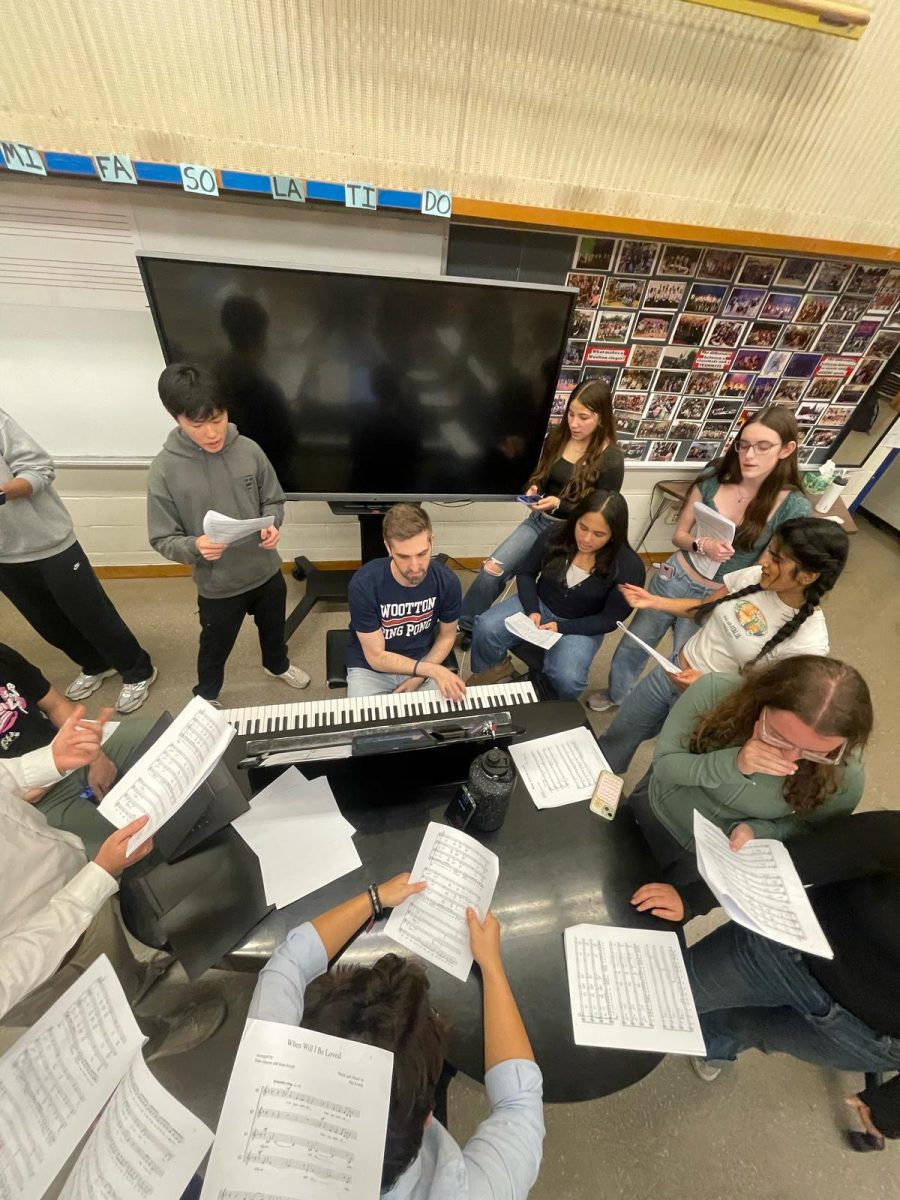In tribute to Halloween season, I am going to share a very frightening experience. Beware, reader discretion is advised.
This story begins on an average fall morning, similar to this one in fact. It’s a good five minutes past the time my brother and I are supposed to leave the house for school, but instead we are still frantically running around, trying to gather all of our belongings.
Right before we leave, I quickly run through my mental checklist one last time. Concluding that I’ve gotten everything, the two of us make for the car — those few seconds can be the difference between a five-minute ride down Wootton Parkway and a 25 minute one.
As we’re driving, I subconsciously reach down toward my cup holder, but my hand grasps nothing where my coffee cup should be.
No. This isn’t happening. I take a deep breath. Gwen, don’t panic. I go through my options:
I can either turn around and go make myself a cup, surely arriving late to school after missing prime-time for traffic.
I can fully embrace my tardiness and drive to Starbucks, potentially missing most of first period.
Or, I can do the unthinkable — go to school without having had my daily dose of caffeine. Instantly, my mind is flooded with thoughts of my tired body falling asleep during my math test, or forgetting my speech in front of my entire English class. But, with my brother in the car, and a note from my first period teacher warning that I already have too many unexcused tardies laying on my kitchen counter, I have no choice. I grin and bear it.
It doesn’t have to be this way, though.
If coffee was sold on school grounds in the morning, I wouldn’t have been in this bind in the first place. Whether a student is suffering from little sleep, or simply knows that they are in for a rough day, they should have the option to purchase caffeinated beverages from the school store.
Selling coffee would benefit the school. How does the school store really make much of a profit anyways? Have you ever seen anyone in there browsing through the apparel? With students relying on the store every morning, even if each drink is only giving the school a profit of an extra dollar, a good pot of money could easily rack up in the span of a year.
In addition, coffee really isn’t too much of a burden to prepare. If the school invested in a few Keurig machines or even a coffee pot for Pete’s sake, it would take little effort to make. In fact, with only one person monitoring and collecting money, students could even make the coffee ourselves.
Lastly, and most importantly, it would fill a needed service for students. If something as simple as a cup of coffee could make or break a student’s day, and administration currently has no rules against it, why wouldn’t the school take appropriate measures to provide it?
Although I may have an extreme coffee addiction, I do think that implementing the sale of coffee into the school store’s few tasks could create just that much more support and proof that administration does care about its students.
Gwen Klein
Managing Editor





![The 2025-2026 Editorial Board Alex Grainger, Cameron Cowen, Helen Manolis, Emory Scofield, Ahmed Ibrahim, Rebekah Buchman, Marley Hoffman, Hayley Gottesman, Pragna Pothakamuri and Natalie Pak (Chase Dolan not pictured) respond to the new MCPS grading policy. “When something that used to be easy suddenly becomes harder, it can turn [students’] mindset negative, whereas making something easier usually has a better impact. I think that’s where a lot of the pushback comes from. But if you put emotions aside, I do think this change could help build stronger work ethic,” Ibrahim said.](https://woottoncommonsense.com/wp-content/uploads/2025/09/fqr5bskTXpn0LRQMmKErLuNKdQYBlL726cFXBaWF-1200x900.jpg)

